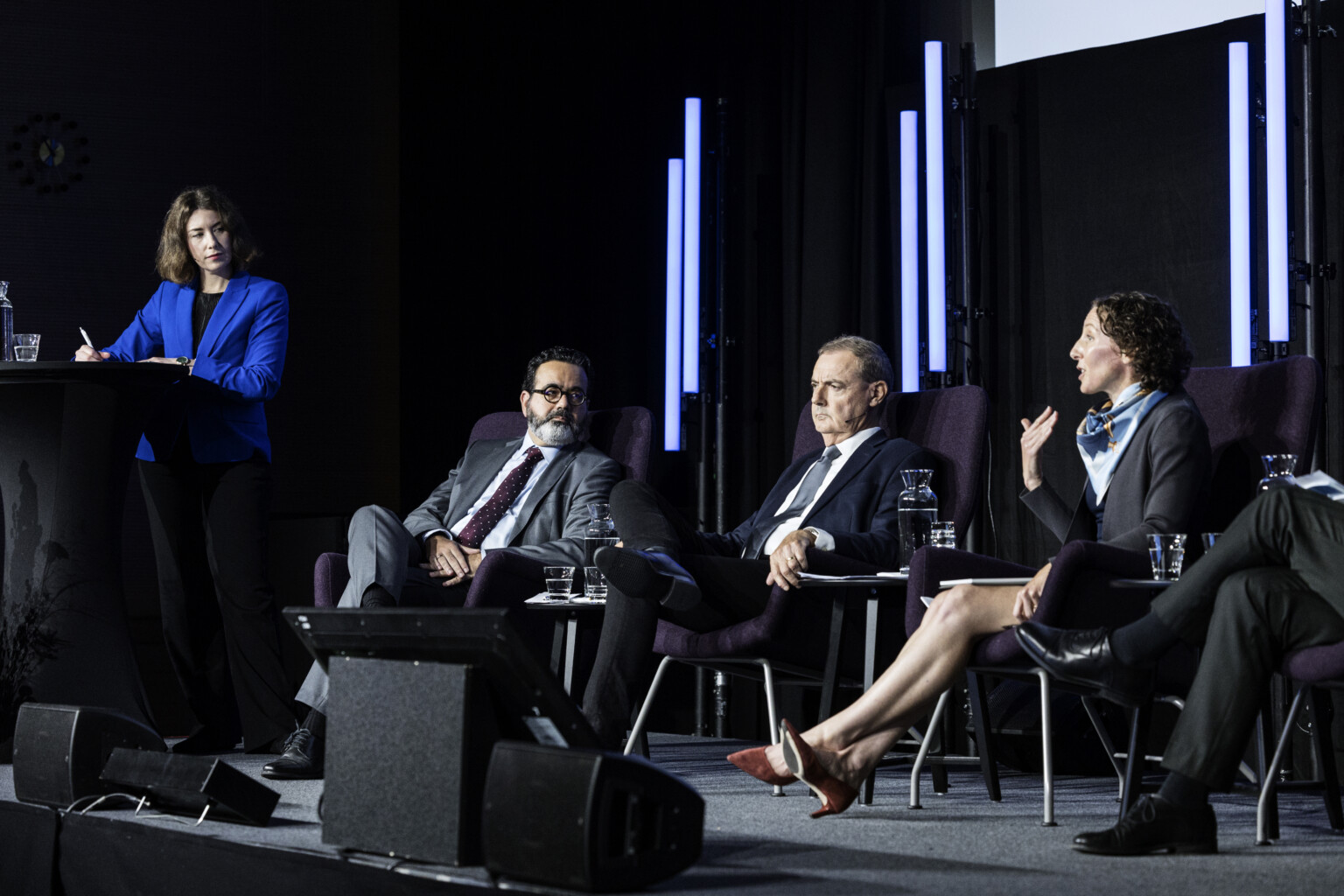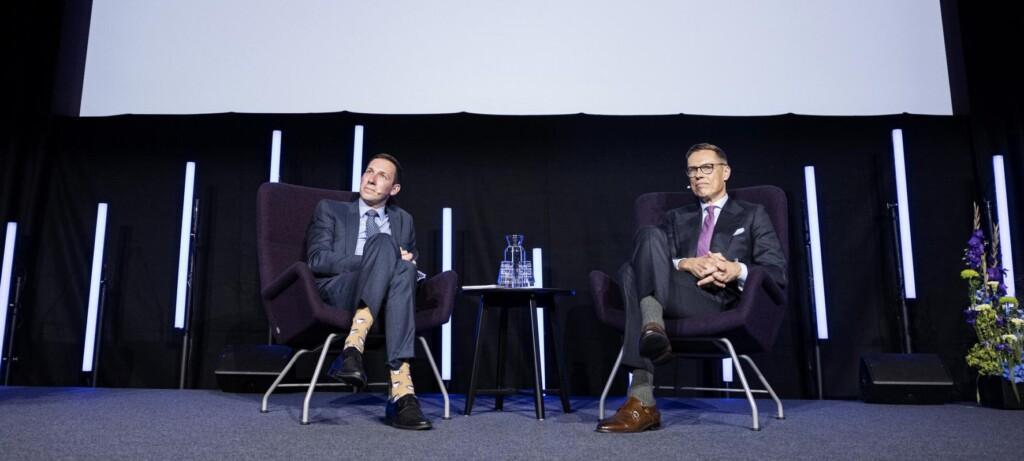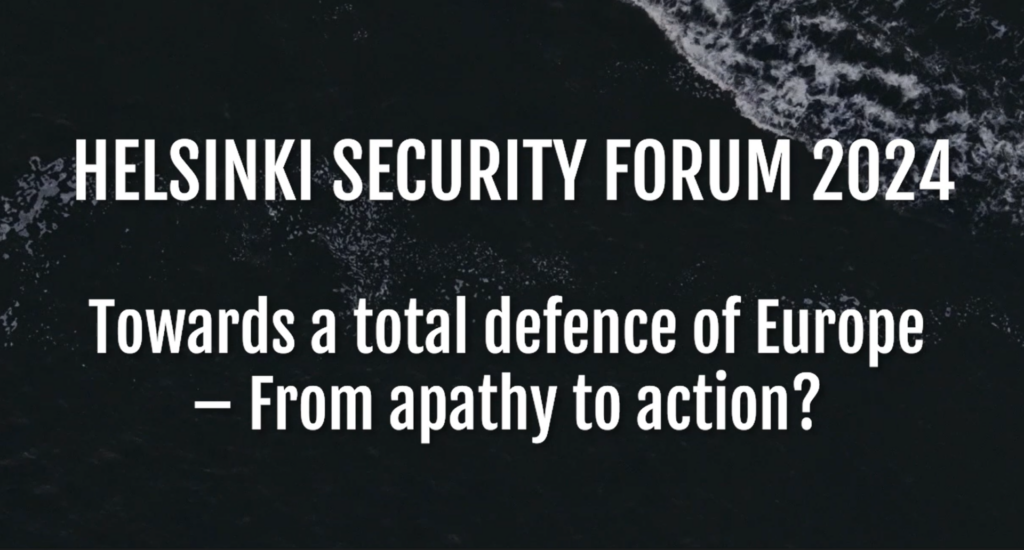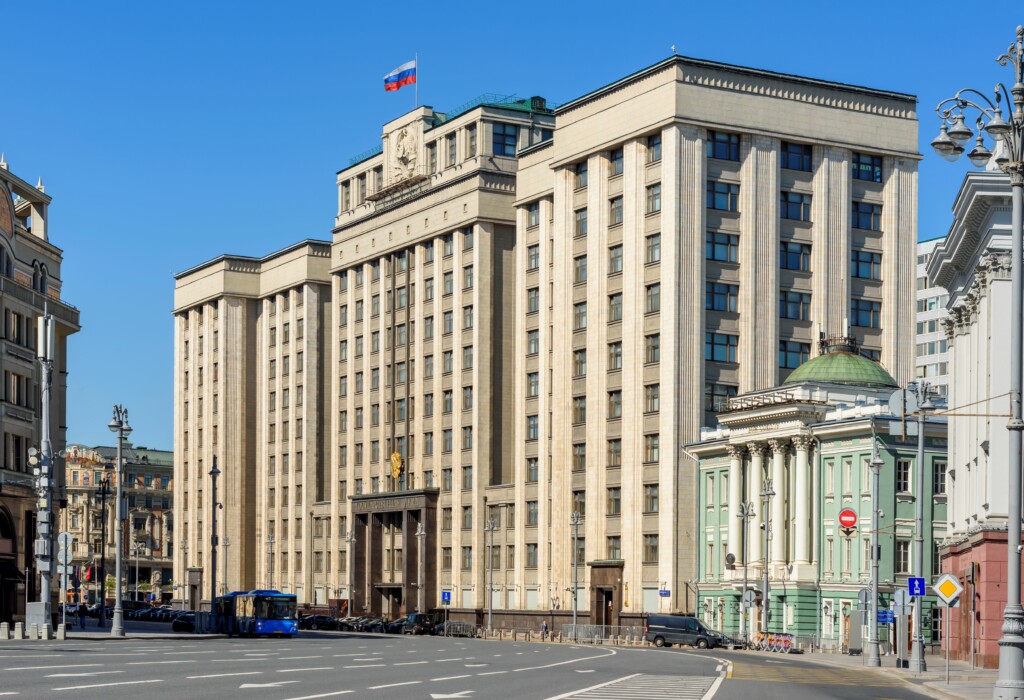Publications

Session VI: Economic Security as National Security
The final session of Helsinki Security Forum 2023 dived into the multifaceted world of economic security. Economic interdependence between countries is a product of globalisation, which, in the era of radical uncertainty, has proven to include both advantages and risks.
What should everyone know about economic security?
In the final session of Helsinki Security Forum 2023, “Economic Security as National Security”, moderator Alexandra Pasternak-Jackson presented this pressing question to the panellists on stage. Pasternak-Jackson, the CEO of AmCham Finland, hosted the session joined by Braz Baracuhy, Chargé d’Affaires of Brazil to the World Trade Organization, David O’Sullivan, EU Sanctions Envoy from European Comission, Sarah Bauerle Danzman, Associate Professor from Indiana University and Mikael Wigell, Research Director from the Finnish Institute of International Affairs.
Pasternak-Jackson kicked off the session by delving into the term “economic security” that refers to a country’s ability to pursue its economic goals. For decades, enhancing one’s economy has required deepening cooperation and interdependence with other nations. This period of “hyper-globalisation” has now, in the era of radical uncertainty, been severely challenged by great power rivalries, the fear of weaponised interdependencies as well as rising barriers to global trade and investment, Pasternak-Jackson noted.
“The idea has been that ‘if goods do not cross borders, soldiers will’. For a long time, we have been very focused on all the ways in which trade and interdependence lead to peace and community among nations and people.”
Sarah Bauerle Danzman reminded, that economic security has always been present in countries’ decision-making. However, the notion of economy security and the understanding of the means needed to achieve it have altered.
“The idea has been that ‘if goods do not cross borders, soldiers will’. For a long time, we have been very focused on all the ways in which trade and interdependence lead to peace and community among nations and people.”
Now the general thought has shifted towards the challenges of interdependence. Bauerle Danzman reminded, however, that companies and organisations in the field of global trade might not always share the same incentives on how to engage in global economy, which creates challenges.
Braz Baracuhy noted that the new outlook on interdependence and globalisation also brings its own implications. Current changes in global economy all reflect geopolitical competition and concerns on national security.
“It can lead to unilateral measures and protectionism. It can contribute to the fragmentation of the international trade landscape. And most importantly for me, it can weaken the multilateral trading system and the WTO.”
The paradox, according to Baracuhy, lies in the fact that the search of absolute economic security could lead to absolute economic insecurity. What is needed is to preserve the most valuable – the multilateral architecture that has been created together.
“The worst-case scenario is that the world will be divided into rival geoeconomic blocks”, Baracuhy said.
Applying export control, sanctions, investment screenings and reshoring to strengthen economic security could easily lead to a geoeconomic chain reaction of deeper and more protectionist measures, continued Mikael Wigell.
Applying export control, sanctions, investment screenings and reshoring to strengthen economic security could easily lead to a geoeconomic chain reaction of deeper and more protectionist measures.
Wigell begun his remarks by referring to the balance of power theory where states react to security threats by strengthening their own national defence – which may feed an arms race. There is a similar dilemma at play in geoeconomics, noted Wigell.
“It is really about balancing economic dependencies. The challenge with balancing economic dependence in comparison with balancing military power is that it is much more complicated to balance dependence.”
According to Wigell this is due to the complex nature of interdependence which makes it challenging to count the cost of it for the actors included. Another difference to traditional geopolitics is the ongoing internal competition among allies and partners.
“Even if Europe and the US agree on the need to economically contain Russia or de-risk from China, they are simultaneously involved in an internal competition”, Wigell explained.
Wigell presents institutionalised transatlantic coordination as a solution to the challenging situation. This would include the allies and partners sharing situational pictures both for risk assessment and public-private dialogue that Bauerle Danzman also referred to.
In his remarks, David O’Sullivan brought the discussion back to the key takeaways on economic security. O’Sullivan noted that current world events such as COVID-19 and the Russian aggression in Ukraine have introduced countries to the risk of over-dependence in certain suppliers. This could become a barrier to domestic policy objectives, said O’Sullivan.
“I think there is going on a re-gearing between resilience and efficiency.”
“We have to rebuild a multilateral structure capable of helping us manage these very real tensions in both national and economic security.”
O’Sullivan reminded, however, that globalisation also carries benefits that should not be forgotten. Many countries have been able to enhance their own economy and the well-being of their citizens due to the global trading system. He also noted that globalisation helps tackle shared issues such as climate crisis and technological development.
All in all, multilateral rules are needed, O’Sullivan agreed. Diminishing the role of actors such as WTO has been a strategic mistake from the international community, he noted.
“We have to rebuild a multilateral structure capable of helping us manage these very real tensions in both national and economic security.”
How can multilateral cooperation and international regulation of trade be enhanced? Who should be coordinating the rules of global economy?
Watch the full discussion here and read more on the topic from the HSF 2023 report here.

HSF 2025 asks ‘The Hour of Europe’: Can the old continent chart a new course for its future?
Helsinki Security Forum 2025 brings experts and decision-makers together to ponder the hard questions and explore Europe’s path forward.

Helsinki Security Forum 2024 addresses the need for European total defence
The third annual Helsinki Security Forum (HSF) will be held on 27–29 September 2024. This year’s conference is titled Towards...

for HSF Blog
Rejecting Russian Spheres of Influence
The EU has rejected the language of spheres of influence in favour of an international order based on common rules...